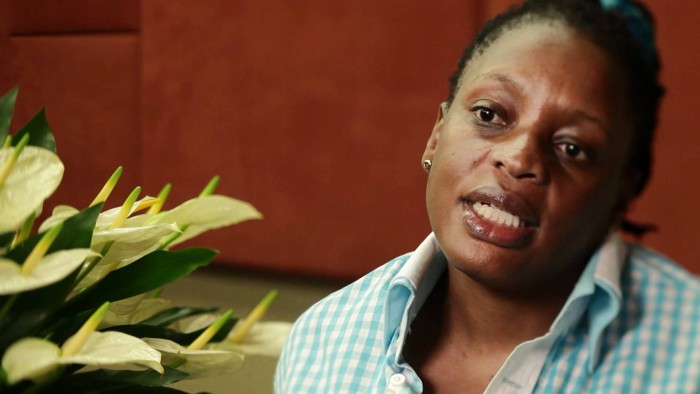By Nduduzo Tshuma
PARLIAMENT was rocked by a new language row on Wednesday when Deputy Speaker Mabel Chinomona told an MP to ask her question in English, instead of Ndebele.

Umzingwane MP Priscilla Misihairabwi-Mushonga (MDC) had risen to ask Tourism Minister Walter Mzembi a question, and used Ndebele which is spoken by most of her constituents.
Zimbabwe has 16 official languages under the Constitution, but only English, Ndebele and Shona have been approved for parliamentary debates.
Parliament employs intepreters and MPs can use supplied headsets when faced with a language barrier, but it is thought these have not worked for months.
“I’d like to ask the Minister of Tourism why when investors come to Zimbabwe they face visa problems,” Misihairabwi-Mushonga said in Ndebele, as one legislator yelled ‘taura neShona!’ (speak in Shona!).
The MP paused, and then pressed on: “Can you work with the Ministry of Foreign Affairs so that when investors come in they don’t have problems? Some Chinese were chased when they came here. What are you doing to rectify this?”
Chinomona, in the Chair, then asked the MP to speak in English, stating that Mzembi does not understand Ndebele.
“… I would want to appeal to you to speak in English as the Hon Minister is not versed in Ndebele and I know that you’re able to speak in all the languages,” said Chinomona.
“May you ask your question in English so that the Minister can understand your question?”
Misihairabwi-Mushonga complied with the Deputy Speaker’s ruling saying: “I’ll do so Madam Deputy Speaker, but I think that he should be able to understand Ndebele. I think he said he understands Ndebele.”
Minister Mzembi, in his response, said: “I’m born of a Ndebele mother and a Karanga father. For the benefit of the greater audience, because her question is really international, I would plead that she just recasts it in English and I know that the Ndebele audience from my mother’s side will benefit from the answer in English.
“So, may I plead with the Hon Member to just recast it in English?”
Chinomona reiterated: “I thought I had already given a ruling on this issue. Hon Misihairabwi, can you please assist the Hon Minister because he doesn’t understand the language.”
Chinomona was again in the chair this month last year when she told then Transport Minister Obert Mpofu to answer a question in Shona, and the minister refused.
Speaking in Shona, Zanu-PF legislator Monica Chigudu, quizzed the Ndebele-speaking minister about the lack of progress on the upgrading of the Harare-Beitbridge highway where fatal accidents continue to occur.
Since his interlocutor had chosen to speak in their mother tongue, Mpofu, the MP for Umguza, elected to respond in Ndebele.
Said the minister: “Honourable Chigudu ubuze umbuzo oqakathekileyo. Kunzima ukulungisa yonke imgwaqo sikhathi sinye kodwa ngiyathembisa ukhuthi iMasvingo iyabe isile dual road ngesikhathi esifitshane [Honourable Chigudu you asked an important question. It’s very difficult to fix all roads at once, but I promise that Masvingo will have a dual carriageway soon].’’
Out of order, decided the Deputy Speaker who immediately intervened.
“Order! Honourable Minister, I plead with you Honourable Minister to try to respond to the question in the language that she has posed the question. Honourable Members, behave yourselves in the House,” said Chinomona.
Mpofu shot back: “I think it would be better if I use English for the interpretation in the Hansard.”
A raucous noise followed with inaudible interjections from legislators after which Mpofu added: “I’m advised by my colleagues that I should proceed in Ndebele.”
And proceed in Ndebele he did. The Chronicle






